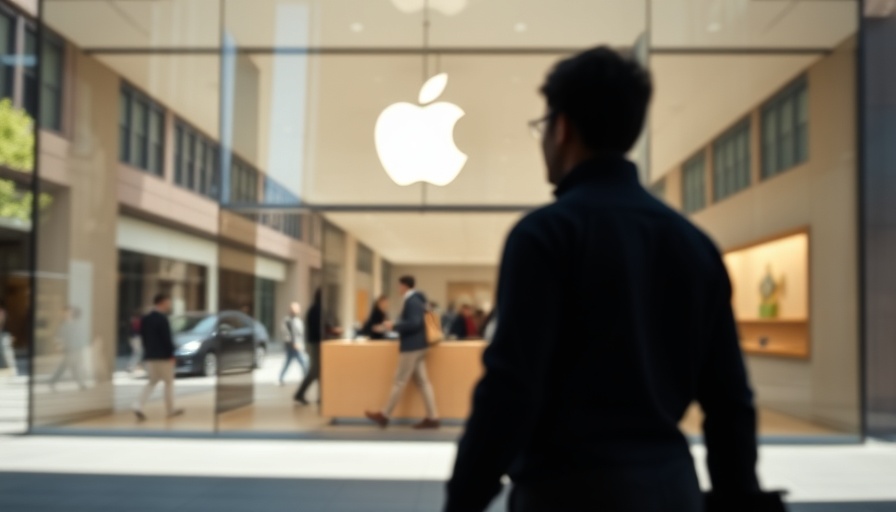
What Apple’s Defiance Reveals About Corporate Ethics
In a surprising turn of events, a federal judge’s contempt ruling against Apple highlights significant ethical questions regarding how the tech giant perceives and treats its users. Judge Yvonne Gonzales Rodgers, presiding over the Epic Games versus Apple antitrust case, called out Apple for what she deemed a deliberate flouting of her orders. The implications run deep, pointing towards a corporate culture that prioritizes profit over customer transparency and choice.
The Consequences of Noncompliance: A Lesson for Corporations
Apples's blatant disregard for the court's ruling could serve as a cautionary tale for other companies in the tech industry. The judge's assessment that Apple imposed barriers to dissuade developers from offering alternative payment methods indicates a systemic approach to stifling competition. This raises critical questions about accountability in corporate practices and could fuel legislative scrutiny on tech giants. The FTC and other regulatory bodies may now see this as an opening to impose stricter regulations on monopolistic behavior.
Consumer Trust Under Threat: Why This Matters
A significant factor at play is the increasing skepticism consumers have toward companies they once considered reputable. Apple's actions, described as “outright lies,” erode trust and may lead consumers to reconsider their loyalty to the brand. Following the ruling, it’s clear that transparency is a hallmark of trustworthy businesses. As more consumers seek companies that align with their values, Apple’s actions may lead to lasting damage to its brand for failing to align business practices with the expectations of transparency and integrity.
Future Implications: The Broader Industry Picture
This ruling could spark a paradigm shift within the tech industry, prompting both developers and consumers to push back harder against unfair practices. The message is clear: there will be consequences for corporations that attempt to maintain power via anticompetitive practices. As Epic Games rallies for change, it beckons a new era of accountability that other big tech companies may not escape. The pressure not only falls on Apple but on an entire industry that has often sidestepped ethical considerations in favor of profit margins.
Challenging Corporate Monopolies: Grassroots Movements Rising
As consumers become increasingly aware of their value and power, grassroots movements advocating for fair practices gain traction. Campaigns supporting fair app store practices may arise, enhancing the visibility of alternatives to corporate giants that engage in unfair practices. With the public spotlight now shining brightly on Apple’s actions, it’s a good time to explore consumer-led initiatives and ways to empower developers to resist existing monopolistic pressures.
Conclusion: Call to Action for Consumers
In light of this recent ruling, consumers need to engage in the conversation surrounding corporate ethics. By voicing dissatisfaction with unfair practices and supporting brands that prioritize transparency, individuals can influence corporate behavior. More than ever, this episode serves as a reminder that consumers wield power, and collective action can foster a marketplace that values integrity.
 Add Row
Add Row  Add
Add 




 Add Row
Add Row  Add
Add 

Write A Comment